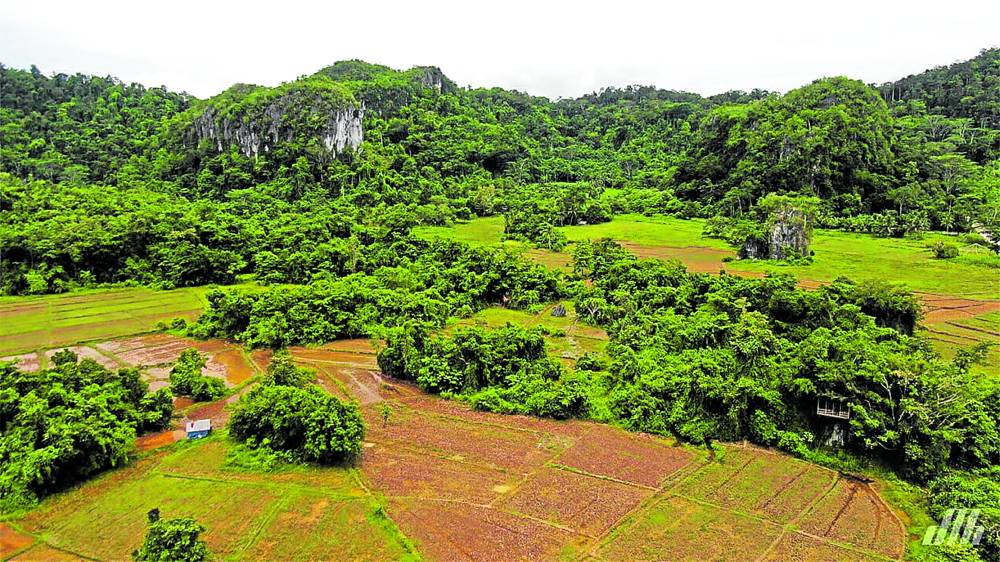Report: Half of ancestral domains under environmental threat

“Taraw ng Lumalayag” (Karst of the Voyager), tucked within the 22,202-hectare protected area (PA) and part of the Cabayugan ancestral domain, is considered as a sacred cave that housed the first Tagbanua settlers, Bayi Sinada and Apu Magsinambi. (Photo courtesy of Geoffrey Delahaye)
Despite the abundance of indigenous lands in the country and the ecosystem services they offer, about half of ancestral domains are under environmental threat, according to a report by a research organization.
At least 1.25 million hectares of ancestral domain are currently “embroiled in environmentally destructive projects,” revealed the 2022 State of the Indigenous Peoples Address Report (Sipa) by the Legal Rights and Natural Resources Center (LRC).
Extractive industries such as logging, mining and quarrying constitute at least 51 percent of all environmentally critical projects (ECPs).
The LRC defined ECPs as projects that create significant ecological risks, such as massive disturbance and pollution of land, waterways, air, climate and biodiversity.
Citing recent data from the Environmental Management Bureau, the LRC found that 83 out of 410 ECPs in the country were situated within or close to lands under registered certificates of ancestral domain titles (CADTs), the indigenous peoples (IPs) formal tenurial instrument for ancestral lands under the 1987 Indigenous People’s Rights Act (Ipra). The report found that 49 percent of mining projects were in conflict with CADTs, while 87 percent of forest areas covered by large-scale logging were in conflict with registered ancestral domains.
Article continues after this advertisementThe LRC report also noted that while indigenous territories in the country cover almost 13 to 14 million hectares of landscapes, only 5.97 million hectares of land area were registered under CADTs, based on 2021 data from the National Commission on Indigenous Peoples.
Article continues after this advertisementStill, even without formal land titles, 5.3 million hectares of ancestral territories are forests, making up 75 percent of our country’s remaining forest cover and generating P1.1 trillion ecosystem value per year.
LRC, one of the groups that pushed for the passage of the Ipra, said the current state of affairs showed that the protective mechanisms of the law “are being undermined.”
“Underpinning these tensions with and pressures on IPs and their ancestral domains is the weak implementation of the free, prior and informed consent (FPIC) process,” the group noted in the report, adding that the “fraudulent acquisition of FPIC has been reported numerous times.”
Lawyer Mai Taqueban, executive director of LRC, said that in the face of the climate crisis, “protecting ancestral domains and their natural defenses to extreme climate impacts is urgently needed.”
“The exploitation and commoditization of nature is sadly an enduring framework to managing our natural resources,” Taqueban said.
She added that the situation had not only marginalized the IPs but “has also worsened their human rights situation, for many of them naturally oppose these projects.”
According to the report, 45 IPs were killed from 2019 to 2021, with cases “linked to various land and resource grabbing issues.”
Taqueban said the IPs “will pursue an IP agenda under the new government,” including the “harmonization of the Ipra with natural resources and other laws affecting IPs.”
The LRC launched the Sipa 2022 ahead of this year’s United Nations Climate Change Conference, “with the intent of urging both local and world leaders to support indigenous actions to address the climate crisis.”
READ: Palace allays fears of IPs in ‘development’ of ancestral domains